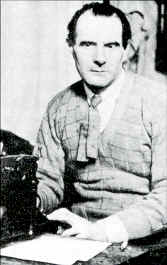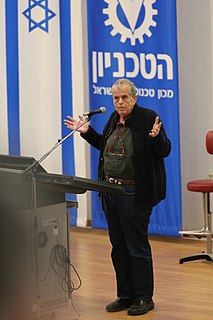A Quote by Ilan Stavans
Literature is the best way to overcome death. My father, as I said, is an actor. He's the happiest man on earth when he's performing, but when the show is over, he's sad and troubled. I wish he could live in the eternal present, because in the theater everything remains in memories and photographs. Literature, on the other hand, allows you to live in the present and to remain in the pantheon of the future.
Literature is a way to say, I was here, this is what I thought, this is what I perceived. This is my signature, this is my name.
Quote Topics
Actor
Because
Best
Best Way
Could
Death
Earth
Eternal
Everything
Father
Future
Hand
Happiest
Happiest Man
Literature
Live
Live In The Present
Man
Memories
Name
Other
Over
Overcome
Pantheon
Perceived
Performing
Photographs
Present
Remain
Remains
Sad
Said
Say
Show
Signature
Theater
Thought
Troubled
Way
Wish
Related Quotes
It seems to me that literature is giving way a little bit to the immediacy of other diversions, other forms of entertainment. What will it be in fifty years? I don't know. Will there be printed books? Probably, but I'm not sure. There's always going to be literature, though. I believe that. I think literature has a way of getting deep into people and being essential. Literature has its own powers.
Literature cannot develop between the categories "permitted"—"not permitted"—"this you can and that you can't." Literature that is not the air of its contemporary society, that dares not warn in time against threatening moral and social dangers, such literature does not deserve the name of literature; it is only a facade. Such literature loses the confidence of its own people, and its published works are used as waste paper instead of being read. -Letter to the Fourth National Congress of Soviet Writers
If you separate from . . . everything you have done in the past, everything that disturbs you about the future . . . and apply yourself to living the life that you are living-that is to say, the present-you can live all the time that remains to you until your death in calm, benevolence, and serenity.
Tomorrow and plans for tomorrow can have no significance at all unless you are in full contact with the reality of the present, since it is in the present and only in the present that you live. There is no other reality than present reality, so that, even if one were to live for endless ages, to live for the future would be to miss the point everlastingly.


































